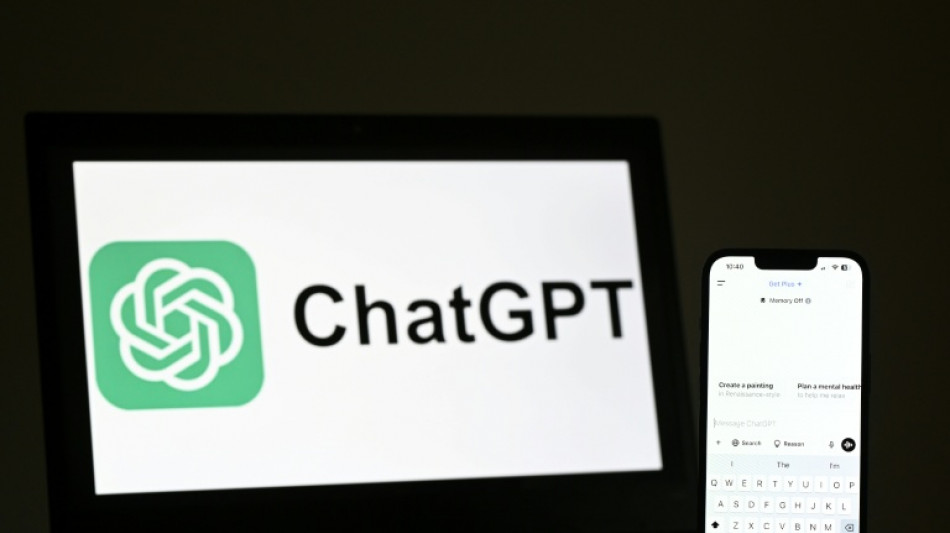
-
 Snake-like robot unveiled for Fukushima debris removal
Snake-like robot unveiled for Fukushima debris removal
-
'Public lynching': Senegal cracks down on LGBTQ+ community

-
 Hong Kong sentences father of wanted activist to 8 months in jail
Hong Kong sentences father of wanted activist to 8 months in jail
-
The woman fighting to reclaim her face from Albania's 'AI minister'
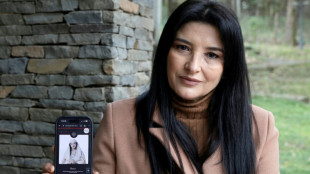
-
 Bulgaria ski station becomes refuge for digital nomads
Bulgaria ski station becomes refuge for digital nomads
-
Thai runner-up party seeks criminal case against election officials

-
 North Korea's Kim shuns South but could 'get along' with US
North Korea's Kim shuns South but could 'get along' with US
-
Spurs win 10th straight, Pistons silence Thunder in battle of NBA's best
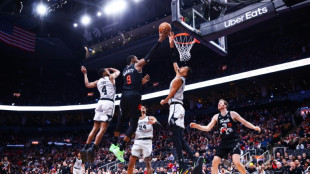
-
 Germany's Merz visits China AI hub hoping for business deals
Germany's Merz visits China AI hub hoping for business deals
-
Post-uprising polls won't shake Nepal's delicate India-China balance

-
 S.Korea's Park Chan-wook to head Cannes festival jury
S.Korea's Park Chan-wook to head Cannes festival jury
-
Australian ex-PM says 'more important than ever' to ditch UK monarchy
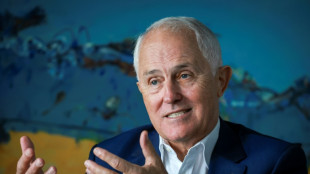
-
 Dressed for succession? Kim Jong Un, daughter fuel speculation with matching coats
Dressed for succession? Kim Jong Un, daughter fuel speculation with matching coats
-
US-Ukraine talks to open in Geneva after overnight Russian strikes

-
 Export ban sparks rush to process lithium in Zimbabwe
Export ban sparks rush to process lithium in Zimbabwe
-
Pakistani sculptor turns scrap into colossal metal artworks

-
 Epstein files reveal links to cash, women, power in Africa
Epstein files reveal links to cash, women, power in Africa
-
Where are Southeast Asia's data centres?

-
 Where AI lives: Southeast Asia's data centre boom
Where AI lives: Southeast Asia's data centre boom
-
Seoul hits fresh record on mixed day for Asia markets
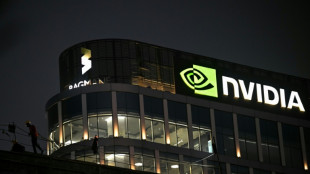
-
 Kyiv residents pool together for solar panels and batteries amid Russian strikes
Kyiv residents pool together for solar panels and batteries amid Russian strikes
-
North Korea's Kim says could 'get along' with US but shuns South

-
 Cuba kills four on US-registered speedboat trying to 'infiltrate'
Cuba kills four on US-registered speedboat trying to 'infiltrate'
-
UK Labour party threatened by hard-right, leftists in heartland
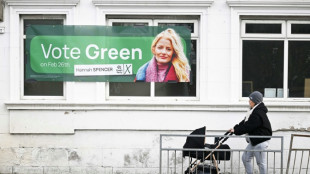
-
 Australian PM sorry after saying sexual assault survivor 'difficult'
Australian PM sorry after saying sexual assault survivor 'difficult'
-
Kim Jong Un spurns olive branch from 'hostile' South Korea

-
 DR Congo sanctuary resists bloody forest sell-off
DR Congo sanctuary resists bloody forest sell-off
-
North Korea looking to replicate youth success at Women's Asian Cup

-
 Deal or no deal: What's the state of Trump's tariffs?
Deal or no deal: What's the state of Trump's tariffs?
-
Hillary Clinton to testify in US House panel's Epstein probe

-
 African migrants won legal protections - then Trump deported them
African migrants won legal protections - then Trump deported them
-
US women's ice hockey captain responds to 'distasteful' Trump remark

-
 US presses missile issue as new Iran talks to open in Geneva
US presses missile issue as new Iran talks to open in Geneva
-
US government accused of major 'cover-up' over Trump sex abuse claims
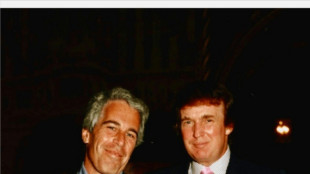
-
 US eases Cuba oil embargo but demands 'dramatic' change
US eases Cuba oil embargo but demands 'dramatic' change
-
IMF urges US to work with partners to ease trade restrictions

-
 Brumbies not getting carried away by emphatic Super Rugby start
Brumbies not getting carried away by emphatic Super Rugby start
-
Innovation Holds Key to Future Growth, New Research from Ipsos, Alchemy-RX and Market Logic Finds

-
 Forecast Change for The 2025/2026 Fiscal Year
Forecast Change for The 2025/2026 Fiscal Year
-
Banyan Gold Continues to Intersect Visible Gold and High-Grade Mineralization in Powerline, Yukon, Canada

-
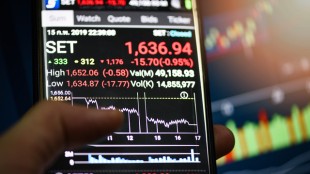 Proxymity and Euroclear Announce Strategic Investment, with Euroclear Becoming Newest Member of its Consortium
Proxymity and Euroclear Announce Strategic Investment, with Euroclear Becoming Newest Member of its Consortium
-
Connecting Excellence Group PLC Announces H1 2026 Trading Update

-
 Empire Metals Limited Announces DTC Eligibility
Empire Metals Limited Announces DTC Eligibility
-
InterContinental Hotels Group PLC Announces Transaction in Own Shares - February 26

-
 Cuba coast guard kills four on US-registered speedboat
Cuba coast guard kills four on US-registered speedboat
-
Juve lick wounds after painful Champions League exit

-
 Real Madrid victory for 'everyone against racism': Tchouameni
Real Madrid victory for 'everyone against racism': Tchouameni
-
Wallabies skipper Wilson back from injury in clash of heavyweight coaches

-
 PSG coach Luis Enrique calls on team to raise their game in Champions League last 16
PSG coach Luis Enrique calls on team to raise their game in Champions League last 16
-
Nvidia smashes forecasts with record quarter as AI boom rolls on


AI search pushing an already weakened media ecosystem to the brink
Generative artificial intelligence assistants like ChatGPT are cutting into traditional online search traffic, depriving news sites of visitors and impacting the advertising revenue they desperately need, in a crushing blow to an industry already fighting for survival.
"The next three or four years will be incredibly challenging for publishers everywhere. No one is immune from the AI summaries storm gathering on the horizon," warned Matt Karolian, vice president of research and development at Boston Globe Media.
"Publishers need to build their own shelters or risk being swept away."
While data remains limited, a recent Pew Research Center study reveals that AI-generated summaries now appearing regularly in Google searches discourage users from clicking through to source articles.
When AI summaries are present, users click on suggested links half as often compared to traditional searches.
This represents a devastating loss of visitors for online media sites that depend on traffic for both advertising revenue and subscription conversions.
According to Northeastern University professor John Wihbey, these trends "will accelerate, and pretty soon we will have an entirely different web."
The dominance of tech giants like Google and Meta had already slashed online media advertising revenue, forcing publishers to pivot toward paid subscriptions.
But Wihbey noted that subscriptions also depend on traffic, and paying subscribers alone aren't sufficient to support major media organizations.
- Limited lifelines -
The Boston Globe group has begun seeing subscribers sign up through ChatGPT, offering a new touchpoint with potential readers, Karolian said.
However, "these remain incredibly modest compared to other platforms, including even smaller search engines."
Other AI-powered tools like Perplexity are generating even fewer new subscriptions, he added.
To survive what many see as an inevitable shift, media companies are increasingly adopting GEO (Generative Engine Optimization) -- a technique that replaces traditional SEO (Search Engine Optimization).
This involves providing AI models with clearly labeled content, good structure, comprehensible text, and strong presence on social networks and forums like Reddit that get crawled by AI companies.
But a fundamental question remains: "Should you allow OpenAI crawlers to basically crawl your website and your content?" asks Thomas Peham, CEO of optimization startup OtterlyAI.
Burned by aggressive data collection from major AI companies, many news publishers have chosen to fight back by blocking AI crawlers from accessing their content.
"We just need to ensure that companies using our content are paying fair market value," argued Danielle Coffey, who heads the News/Media Alliance trade organization.
Some progress has been made on this front. Licensing agreements have emerged between major players, such as the New York Times and Amazon, Google and Associated Press, and Mistral and Agence France-Presse, among others.
But the issue is far from resolved, as several major legal battles are underway, most notably the New York Times' blockbuster lawsuit against OpenAI and Microsoft.
- Let them crawl -
Publishers face a dilemma: blocking AI crawlers protects their content but reduces exposure to potential new readers.
Faced with this challenge, "media leaders are increasingly choosing to reopen access," Peham observed.
Yet even with open access, success isn't guaranteed.
According to OtterlyAI data, media outlets represent just 29 percent of citations offered by ChatGPT, trailing corporate websites at 36 percent.
And while Google search has traditionally privileged sources recognized as reliable, "we don't see this with ChatGPT," Peham noted.
The stakes extend beyond business models.
According to the Reuters Institute's 2025 Digital News Report, about 15 percent of people under 25 now use generative AI to get their news.
Given ongoing questions about AI sourcing and reliability, this trend risks confusing readers about information origins and credibility -- much like social media did before it.
"At some point, someone has to do the reporting," Karolian said. "Without original journalism, none of these AI platforms would have anything to summarize."
Perhaps with this in mind, Google is already developing partnerships with news organizations to feed its generative AI features, suggesting potential paths forward.
"I think the platforms will realize how much they need the press," predicted Wihbey -- though whether that realization comes soon enough to save struggling newsrooms remains an open question.
D.Sawyer--AMWN
